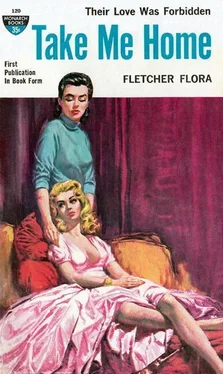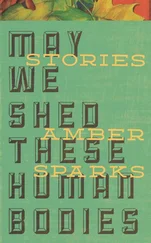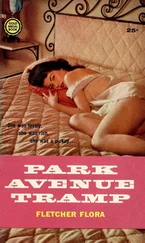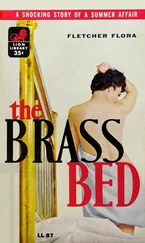Флетчер Флора - Take Me Home
Здесь есть возможность читать онлайн «Флетчер Флора - Take Me Home» весь текст электронной книги совершенно бесплатно (целиком полную версию без сокращений). В некоторых случаях можно слушать аудио, скачать через торрент в формате fb2 и присутствует краткое содержание. Город: New York, Год выпуска: 1959, Издательство: Monarch, Жанр: Эротические любовные романы, на английском языке. Описание произведения, (предисловие) а так же отзывы посетителей доступны на портале библиотеки ЛибКат.
- Название:Take Me Home
- Автор:
- Издательство:Monarch
- Жанр:
- Год:1959
- Город:New York
- ISBN:нет данных
- Рейтинг книги:4 / 5. Голосов: 1
-
Избранное:Добавить в избранное
- Отзывы:
-
Ваша оценка:
- 80
- 1
- 2
- 3
- 4
- 5
Take Me Home: краткое содержание, описание и аннотация
Предлагаем к чтению аннотацию, описание, краткое содержание или предисловие (зависит от того, что написал сам автор книги «Take Me Home»). Если вы не нашли необходимую информацию о книге — напишите в комментариях, мы постараемся отыскать её.
Take Me Home — читать онлайн бесплатно полную книгу (весь текст) целиком
Ниже представлен текст книги, разбитый по страницам. Система сохранения места последней прочитанной страницы, позволяет с удобством читать онлайн бесплатно книгу «Take Me Home», без необходимости каждый раз заново искать на чём Вы остановились. Поставьте закладку, и сможете в любой момент перейти на страницу, на которой закончили чтение.
Интервал:
Закладка:
“You’re very generous,” she said. “It may be that I’ll see you again.”
“It may be,” he said.
She went out and down the street, carrying the bag. The bag, which was small and light, kept getting bigger and heavier, and at first she alleviated this by changing it from hand to hand, but then it was as heavy in one hand as the other, and the mile to the hotel was surely two at least. She finally arrived, however, stopping to read the vertical sign above the entrance, and she was relieved to see that the building made a somewhat better appearance than she had hoped for, in spite of the Greek’s recommendation. It was a narrow building, constructed of brick and pressed between two other buildings that were not so high and consequently gave to it an effect of greater height than it had. It had a revolving door, which she entered, and two shallow steps upward to the lobby, which she climbed. The lobby was small and shabby, but the shabbiness managed to retain a suggestion of respectability, and there were some deep leather chairs and potted plants distributed over a worn red carpet. Some of the chairs were occupied, and she noticed that the occupants were all elderly men who were so in harmony with the general tone of the place that they might have been installed there by design as part of the furnishings. There was also an elderly man behind the desk, and Ivy approached him and spoke with spurious arrogance that was a defensive effect of her uncertainty.
“I’d like a room, please,” she said.
The elderly clerk responded as if this were a reasonable and routine request, which somehow surprised her and gave her an exorbitant sense of acceptance. He presented a card, which she signed, and then slapped a bell that summoned a Negro bellhop.
“Six-ten,” the clerk said.
He handed the Negro, who was also elderly, a key fastened by a chain to a heavy fiber tag. The Negro took the key and Ivy’s bag and started for the elevator, and Ivy followed. They went up in the elevator together and down the narrow sixth floor hall to room ten, and then, after the Negro was gone and the door closed behind him, Ivy was swept immediately by the terrible desolation of being in a strange and unloved place with absolutely nothing to do.
She did not know how she could ever survive the desolate day, and she wished now that she had remained at Henry’s until late in the afternoon, just before he was due to return. Then, at that time, it would already be getting dark at the end of the short winter’s day, and the gray hours would be past, over and done with, the neons and fluorescents and incandescents burning against the darkness, and if there was a menace in the night that the day did not have, its pulse was quicker, and it passed faster, and it was usually possible, sometime in the course of it, to sleep and lose the consciousness of time entirely. But she had not thought, she had left in the middle of the day, the worst possible of times, and now she was trapped in this deadly room and must either escape it or somehow devise a way to bear it.
She removed her hat and coat and put them in a closet and went over to a window and stood looking down upon the tarred roof of the building next door. The black expanse was bleak and ugly, with sooty patches of snow in the corners at the base of the parapet and against the north sides of the chimney and a metal ventilator. The ugliness of the roof increased her depression, and she turned away from the window and sat down in a chair and began to think about where she could go from where she was and how she could live after the twenty dollars were gone. She could not go home, to the house of her parents, and she would not go back to Lila, and it was very doubtful after what had happened, in spite of the Greek’s assurance, that she could go back to Henry. There were places she could go where she would find understanding and help, the allegiance of kind, but she had never gone to any of these places and did not want to go, because going to them was the voluntary acceptance of a kind of segregation that was crippling and degrading.
Well, she would have to go to work and live alone, but what could she do? She had no particular talents and no special training. She could get a job as a clerk in a store, of course, even though she had no experience, and it should be especially easy now, during the Christmas shopping rush, but such a job would be very dull and would pay very little, and it could be considered at best only something to do until something better could be found. Thinking about the necessity for getting a job, she remembered for the first time that day that she actually already had one, that she was committed to helping old Adolph Brennan in his book shop, and that she had walked away without once thinking about it. It would have been only common courtesy to have stopped to explain why she couldn’t work any longer, and to say good-by, and she regretted that she had not. He owed her a little money, too, and perhaps later she could go there and get it.
The air in the room was stale and very warm. The radiator against the wall made a soft, whispering sound of escaping steam that was pleasant to hear and soothing in effect. Listening to the sound, she felt herself becoming a little drowsy, and this was good. It would be good to sleep and would solve the problem of how to survive the day. She got up and sat down on the edge of the bed and removed her shoes and lay down. The action dispelled the drowsiness, but she lay and listened to the sound of the steam and slowly became drowsy again, and after a while she went to sleep and slept through the rest of the day and wakened in darkness about eight o’clock. She wakened in terror with a scream in her throat, but she remembered in time where she was and why, and terror diminished as the scream became a whimper. Getting up, she turned on a light and washed her face in the bathroom. Leaving the light burning, wearing her hat and coat, she went out of the room and downstairs in the elevator and across the lobby into the street.
She wasn’t hungry, but she thought that she had better eat for the sake of her strength, and besides, eating was something to do that would pass some time. She walked along, looking for a place, and in the next block, or maybe it was in the block after the next, she came to a basement restaurant with a flight of steps leading down from street level to the door, and she descended the flight to the door and went inside. On her right as she entered was a long bar with two men and one woman in front of it on stools and a bartender behind it in a white jacket. The men and the woman and the bartender were all watching a prize fight on an elevated television set at the far end of the bar, and she walked past them down two more steps into the restaurant.
Since she had so little money, she felt compelled to order wisely, to get as much food as possible for what she would have to pay. Considering this, and feeling very sensible and efficient in doing so, she decided that a steak would be best all around, one of the cheaper cuts, and he ordered the steak medium rare and ate it slowly after it was served, cutting small bites and chewing each one thoroughly. From where she sat, she could see at an upward angle, over the top of a low partition, the heads of the two men and the woman at the bar. They were now faced squarely around, no longer looking downbar toward the television, and so she assumed that the fight was over.
The bar seemed all at once a wonderful place, a sanctuary, and she made up her mind suddenly that she would go in and have a drink and sit there for a while in the sanctuary. She couldn’t afford it, of course, not even one drink, but she thought of the cost in terms of warmth and casual companionship and the pleasant passage of time, and the price of a drink for all this was surely little enough. The waiter had left her check, and she picked it up and carried it over to the cashier and paid it. With part of her change, she got a package of cigarettes from a machine, another extravagance which she did not even try to justify. She was beginning to feel, in fact, strangely compatible with immediate circumstances, indifferent to matters which had previously, only a little while ago, seemed enormously important and threatening. At the bar, the bartender stood opposite her and smiled politely. He had a twisted nose and a thick ear on the left side, but these acquired defects had the effect of making him more attractive than he would otherwise have been, giving distinction to a face that would have been nondescript without them, and she wondered if he had been a prize fighter or wrestler before becoming a bartender.
Читать дальшеИнтервал:
Закладка:
Похожие книги на «Take Me Home»
Представляем Вашему вниманию похожие книги на «Take Me Home» списком для выбора. Мы отобрали схожую по названию и смыслу литературу в надежде предоставить читателям больше вариантов отыскать новые, интересные, ещё непрочитанные произведения.
Обсуждение, отзывы о книге «Take Me Home» и просто собственные мнения читателей. Оставьте ваши комментарии, напишите, что Вы думаете о произведении, его смысле или главных героях. Укажите что конкретно понравилось, а что нет, и почему Вы так считаете.












